
Ivybridge is a small town and civil parish in the South Hams, in Devon, England. It lies about 9 miles (14.5 km) east of Plymouth. It is at the southern extremity of Dartmoor, a National Park of England and Wales and lies along the A38 "Devon Expressway" road. There are two electoral wards in Ivybridge East and Ivybridge West with a total population of 11,851.
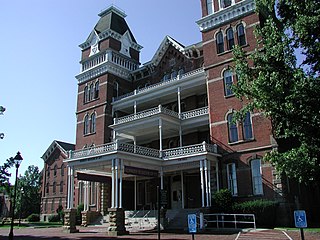
The Athens Lunatic Asylum, now a mixed-use development known as The Ridges, was a Kirkbride Plan mental hospital operated in Athens, Ohio from 1874 until 1993. During its operation, the hospital provided services to a variety of patients including Civil War veterans, children, and those declared mentally unwell. After a period of disuse the property was redeveloped by the state of Ohio. Today, The Ridges are a part of Ohio University and house the Kennedy Museum of Art as well as an auditorium and many offices, classrooms, and storage facilities.

Whitchurch Hospital was a psychiatric hospital in Whitchurch, an area in the north of Cardiff. It was managed by the Cardiff and Vale University Health Board. The hospital remains a grade II listed building.
The Commissioners in Lunacy or Lunacy Commission were a public body established by the Lunacy Act 1845 to oversee asylums and the welfare of mentally ill people in England and Wales. It succeeded the Metropolitan Commissioners in Lunacy.
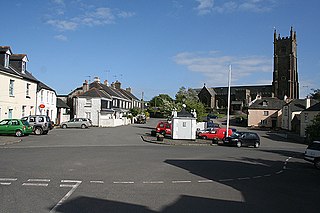
Ugborough is a village and civil parish in South Hams in the English county of Devon. It has a large church with a history going back to 1121. It also contains a small junior school and pre-school, a village hall and a central square. It also has had a football team for many years which now contains 3 teams spanning from under 10s to under 16s. The under 16s finished 3rd in the Pioneer Youth League in 2019. A public bus service runs through Ugborough, as does a bus to the local secondary school at Ivybridge. It holds a fair every year in July, with traditional games and stalls. More recently a Youth Group has been set up, catering for many of the village's children. Ugborough is 2 miles (3.2 km) from the Devon Expressway the A38. The main bulk of the village is situated encircling a central village square. In the village hall, which doubles as a pre-school, various entertainments are held mainly in the summer months ranging from live music to themed evenings.
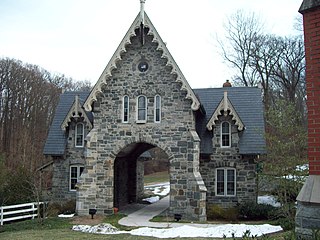
The Sheppard and Enoch Pratt Hospital, known to many simply as Sheppard Pratt, is a psychiatric hospital located in Towson, a northern suburb of Baltimore, Maryland. Founded in 1853, it is one of the oldest private psychiatric hospitals in the nation. Its original buildings, designed by architect Calvert Vaux, and its Gothic gatehouse, built in 1860 to a design by Thomas and James Dixon, were designated a National Historic Landmark in 1971.

Gartloch Hospital was a mental health facility located on the Gartloch Road near the village of Gartcosh in Glasgow, Scotland. It opened in 1896 and was officially closed in 1996. It was managed by NHS Greater Glasgow.

Pen-y-Fal Hospital was a psychiatric hospital in Abergavenny, Monmouthshire. The main building is Grade II listed.

Roundway Hospital was a psychiatric hospital in the parish of Roundway near Devizes, Wiltshire, England. It was originally called the Wiltshire County Lunatic Asylum and later the Wiltshire County Mental Hospital. It opened in 1851 and closed in 1995.
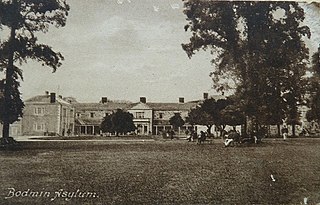
St Lawrence's Hospital was a mental hospital in Bodmin, Cornwall, England, UK. Part of the hospital has been converted to residential accommodation and the remainder has been demolished.

Plympton House is the principal residence at the Plympton House Estate, in the parish of Plympton St Maurice, Devon, England. It is a Grade I listed country house, in the William-and Mary tradition, near St Maurice's Church in Plympton, commenced by Sir George Treby (1643–1700) and completed c. 1715 – 1720 by his son George Treby. The architect is unknown although accounts in 1720 refer to William Veale, mason.
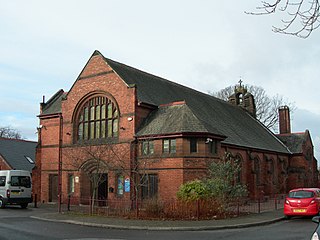
Winwick Hospital was a mental health facility at Winwick, Cheshire, England.

Cherry Knowle Hospital was a mental health facility in Ryhope, Tyne and Wear, England. It was managed by the South of Tyne and Wearside Mental Health NHS Trust.

Kingsway Hospital was a mental health facility in Derby, England.

Mapperley Hospital is a mental health facility on Porchester Road in Nottingham, England.

Shelton Hospital was a mental health facility in Shelton, Shropshire, England. The main building survives and it is a Grade II listed building.
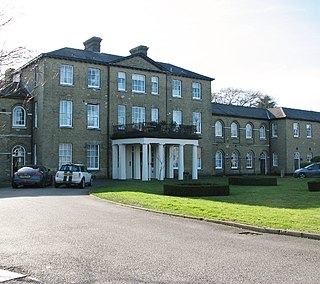
St Andrew's Hospital was a mental health facility in Thorpe St Andrew, Norwich, Norfolk, England. The main building survives and it is a Grade II listed building.

The Royal Dundee Liff Hospital was a mental health facility in Liff, Angus, Scotland. Greystanes House, which was the main building, and, Gowrie House, which was the private patients' facility, are both Grade B listed buildings.
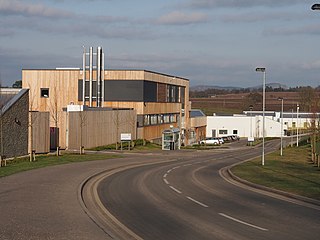
The Murray Royal Hospital is a mental health facility in Perth, Scotland. It is managed by NHS Tayside. The original main building is a Category A listed building.
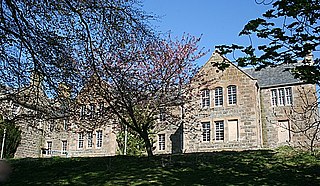
Ladysbridge Hospital was a mental health facility near Banff, Aberdeenshire, Scotland. The former hospital is a Category B listed building.






















